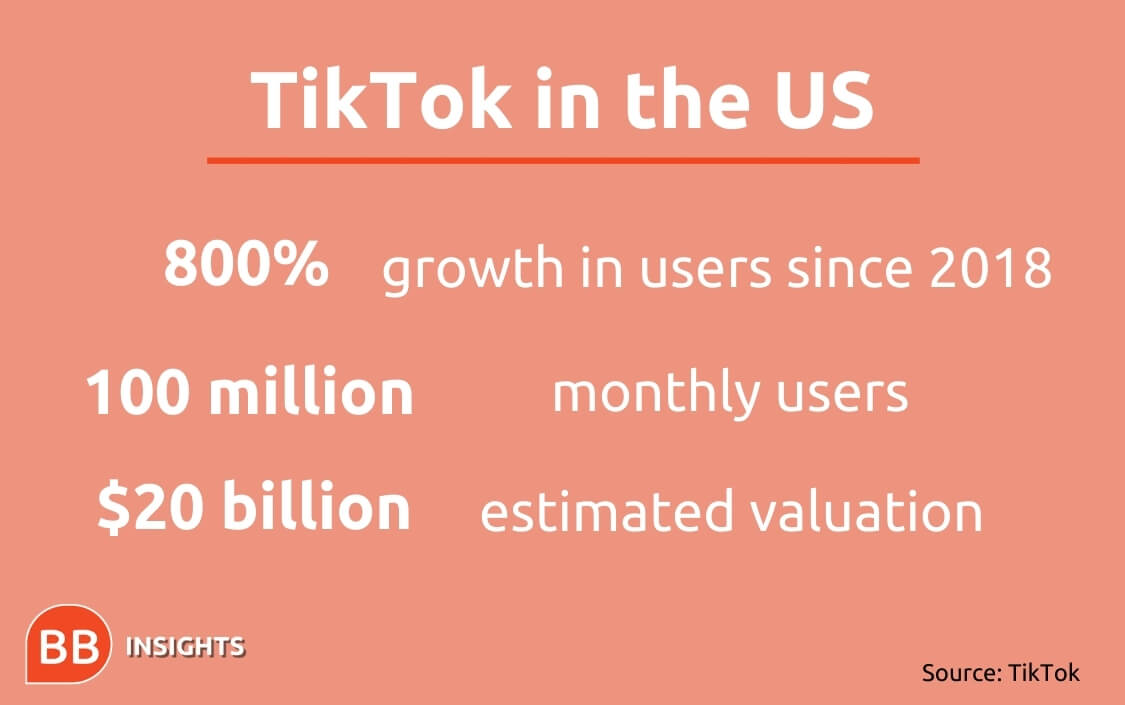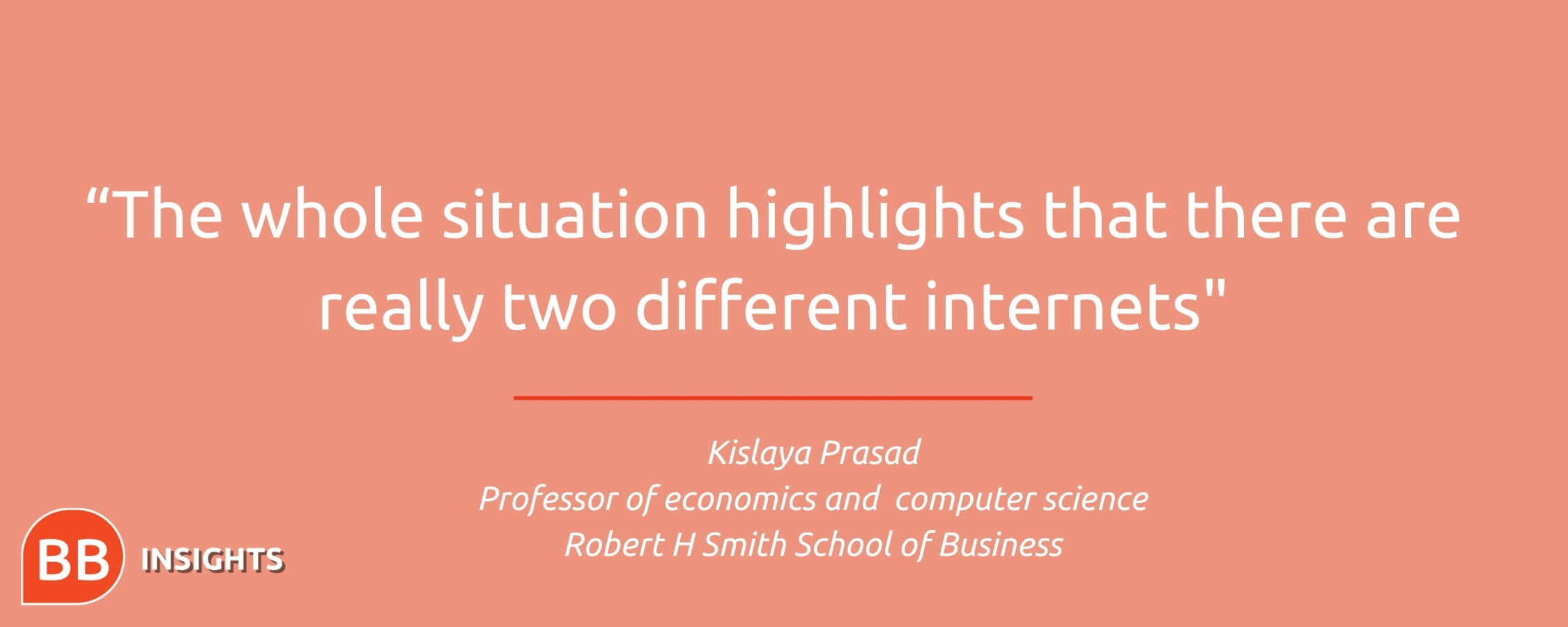Following Trump's threat to ban TikTok in the US, the app has announced plans to become a standalone US company, with Oracle, a US software company, taking a minority stake. ByteDance, TikTok’s Chinese parent company, will remain the majority stakeholder.
After a lot of toing and froing, the latest update is that Trump has given his 'preliminary approval' of the deal, though he also announced that TikTok would be creating a $5 billion patriotic education fund, which they later denied.
As tension rises between China and the US over who has access to the data generated by the app, a gap is emerging between social media and politics. Instead of connecting people across nations, the TikTok circus has inflamed geopolitical tensions and highlighted a potential split between eastern and western internet infrastructure.
What happens next with TikTok?
While TikTok’s announcement is a big story, Betsy Sigman, professor at Georgetown University’s McDonough School of Business, points out that it’s far from a done deal.
Partnering with Oracle makes some sense, since Oracle CEO Larry Ellison is one of the only Silicon Valley tech leaders to vocally support Trump.
“This could also help position Oracle well for the ongoing period of trade wars between China and the US, and expand into cloud operations and advertising,” Betsy adds.
After a series of U-turns, its still hard to know wether the proposed deal actually satisfies the Whitehouse. Both Trump and the Committee for Foreign Intervention in the United States (CFIUS) want to ensure TikTok won’t be passing any data from its many young American fans back to China, or posing any threat through malware.
In a recent stipulation, China insisted that TikTok’s algorithm counted as sensitive information that can’t be shared with the US, adding further complications to any deal being made.
Kislaya Prasad, professor at Robert H Smith School of Business, believes this stipulation was made in order to delay a distressed sale. “My guess is that they will stretch out the finer points of the deal until after the US election,” he says.
Though Microsoft was tipped as the more likely partner, they turned down a deal after TikTok refused to give them end to end control of US data. It's possible the Oracle deal may have too lenient in this crucial area, causing further complications and doubts.

The political tensions behind the TikTok deal
TikTok may appear nothing but a mindless, if addictive app, but the platform has become a battleground for ongoing political tensions between Washington and Beijing. “There is an element of wrong place, wrong time,” says Kislaya.
“In a way, TikTok is a victim of its own success,” he adds. There are over 100 million monthly active US users on the app.
Chinese tech companies may be more at risk of becoming pawns in the trade war with the US, since Chinese manufacturing is so hard to compete with. As the home to Amazon, Google, Facebook, and Microsoft, America can afford to throw its weight around in this arena.
Just as tense are concerns over data sovereignty, privacy, and security. “When it comes to state access to information, China is playing by a completely different rulebook,” says Kislaya.
State control of information is enshrined in Chinese law, and all Chinese companies are required to cooperate with any intelligence operation and request for data from the Chinese Communist Party.
The professors remain divided over the level of threat TikTok actually poses. Kislaya believes it’s alarmist to see TikTok as a huge threat to American security in its current state.
Betsy is more cautious, having already advised her American students to delete the app. “There is a threat of software malfeasance if apps are connected to a company controlled by a country whose leadership has a past record of disregarding human rights,” she says.
Both Betsy and Kislaya predict tensions will only continue to rise, as neither China nor the US show signs of backing down.
What does this mean for big tech?
The drama over TikTok’s sale comes at a critical time for big tech, and in the wake of Silicon Valley’s CEOs facing a grilling from the US congress anti-trust panel.
The issue is that tech giants have monopolized the market, but monopolization is often baked into the very premise of social media apps. “Facebook becomes more valuable if there are lots of people on it, as does TikTok,” says Kislaya.
“Big tech will want free movement of data with no constraints at all,” he adds, which is at direct odds with increasing government concerns over data protection.
In India, where TikTok is already banned, there has been a goldrush of new startups creating social media apps to fill the nation’s sudden vacuum.
Since ByteDance has had to break up it’s company to keep TikTok in the US, it may be that the age of establishing a new giant tech company is over. New companies may find it tough to break into different countries amid government tensions.
“The whole situation highlights that there are really two different internets, China’s, and America’s,” says Kislaya. It seems increasingly unlikely any one company will ever operate in both America and China successfully.
Betsy also highlights how US tech giants have been quick to launch competitors to TikTok, such as Instagram Reels and YouTube Shorts. If such apps take off, the strength of the American tech giants may grow stronger still.
Regulation regulation regulation
For both professors, the most important takeaway from the drama with TikTok is the need to regulate tech better, though this is a huge challenge in the current political climate.
For regulation around data sovereignty to work effectively, Kislaya suggests an international, institutional framework which sets out clear rules about how data is used and transferred between nations.
But if Trump wins in November, it may be a while before progress is made in this area.
Given the level of sophistication and constant developments in modern tech, it’s a difficult sector for politicians to keep up with. Awareness is increasing, but it may take a generational shift until those in power have the technical knowledge necessary to regulate properly.
For Betsy, this is too long to wait. “The U.S government has to work harder to stay on top of cybercrime, data security, and the threat to digital misinformation. Too much is at stake to risk.”
Read more BB Insights content:
What Does Huawei's UK 5G Ban Mean For The Internet Of Things?
BB Insights explores the latest research and trends from the business school classroom, drawing on the expertise of world-leading professors to inspire and inform current and future leaders



